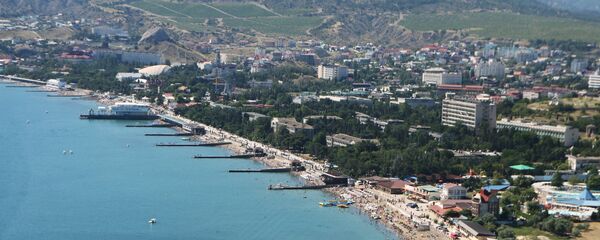On Monday, the Daily Mail ran a small piece about a WWII-era German parachute mine that was discovered in the port city of Sevastopol, and taken to the open sea for safe disposal. The newspaper emphasized on three separate occasions that the mine was found "in Russia," prompting an infuriated Ukrainian Embassy in London to issue a pair of angry tweets.
Crimea is Ukraine.Despite the provocative @MailOnline article it achieves nothing&it would not assist Mr Putin in increasing his public fans pic.twitter.com/iDgSyKVecD
— Ukraine's Emb. to UK (@UkrEmbLondon) 13 июня 2017 г.
"Crimea is Ukraine," the Embassy fumed. "Despite the provocative @MailOnline article it achieves nothing&it would not assist Mr Putin in increasing his public fans," it added.
The Embassy then published a longer text using the hashtags "#Crimea is #Ukraine," urging the Daily Mail "to remind its readers about the UK's strong position on Crimea and that sanctions against Russia remain unchanged."
.@MailOnline We are clear: #Crimea is #Ukraine. pic.twitter.com/Nqc55bdJWJ
— Ukraine's Emb. to UK (@UkrEmbLondon) 13 июня 2017 г.
In its long telegram-style note, the Embassy even oddly suggested that "all acts operated by the Russian authorities on the temporarily occupied territory of Crimea, including all air and sea ports, - are illegal." By this logic, maybe the 'Russian authorities' should have simply left the dangerous WWII-era mine floating in Sevastopol Bay?
Sevastopol was founded by Russia in 1783 as a port for the Russian Black Sea Fleet. In that year, the Ottoman Sultan transferred control of the Crimean Peninsula to Russia.
On March 18, 2014, following a referendum in which more than 80 percent of eligible voters participated, and more than 95 percent voted in favor of rejoining Russia, the peninsula finally returned home to Russia. Crimea's move came soon after the Maidan coup in Kiev the previous month; locals were concerned by the new Ukrainian authorities' anti-Russian attitudes and immediate move to eliminate the status of Russian as a second official language.


